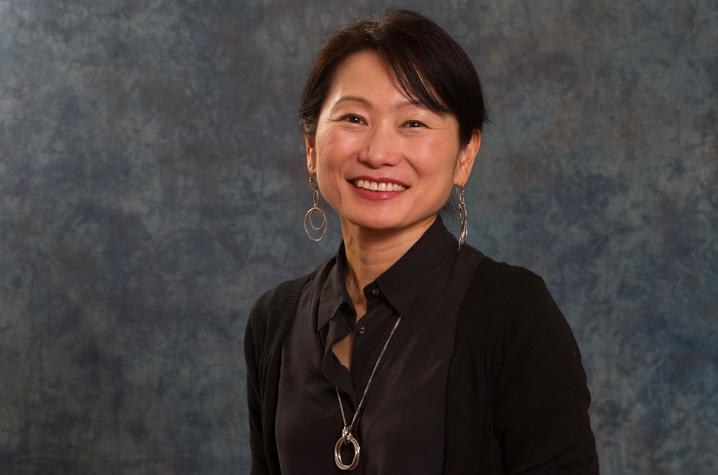By Gail Hairston
 Akiko Takenaka, associate professor of history and associate chair of the University of Kentucky Department of History, has been awarded a 2017-18 Fulbright U.S. Scholar grant to research and write her second book, to be titled “Mothers Against War: Gender, Motherhood, and Grassroots Peace Activism in Postwar Japan, 1945-1970.” She will spend the year in Tokyo with affiliations with Sophia University and Waseda University.
Akiko Takenaka, associate professor of history and associate chair of the University of Kentucky Department of History, has been awarded a 2017-18 Fulbright U.S. Scholar grant to research and write her second book, to be titled “Mothers Against War: Gender, Motherhood, and Grassroots Peace Activism in Postwar Japan, 1945-1970.” She will spend the year in Tokyo with affiliations with Sophia University and Waseda University.
In her research to write the book, Takenaka said, “I look at grassroots peace activism that was initiated by women (of Japan). I’m trying to better understand the ways that Japanese women have gendered their social and political participation.
“In the book, I examine the shifts in ways that the concepts of womanhood and motherhood have been imagined and promoted, and the complex processes through which Japanese women have strived to project their voices in a society where legacies of patriarchy persist,” she said. “The work is also a study of U.S.-Japan relations, as the U.S. pressure on Japan to increase its military capacity looms in the background of each case study.”
Takenaka said her project “will also deal with U.S. influence on Japan during the Allied occupation (1945-1952) and beyond. During the occupation, the SCAP’s CI&E (Supreme Commander of Allied Powers Civil Information and Education Section) shaped and reshaped how the Japanese understood gender and democracy in ways that were beneficial to America’s international relations. At the end of the occupation in 1952, Japan and the U.S. signed a mutual security treaty. One of the premises was that Japan will not own a standing military with the understanding that the U.S. would protect Japan. This also meant that the U.S. could keep its (military) bases in Japan. America’s wars in Asia, like Korea and Vietnam and later in the Middle East, were fought primarily from Japan,” she said.
“For the Japanese, memories of aerial attacks on the homeland were still fresh, and many opposed (America’s) wars. Many also opposed the renewal of the treaty that happened in 1960 and 1970. I look at how women, in these moments, attempted to mobilize their role as mothers to oppose war,” she said.
A specialist in the “memories of the Asia-Pacific War,” Takenaka’s first book, “Yasukuni Shrine: History, Memory, and Japan’s Unending Postwar”(University of Hawaii Press, 2015), examined Japanese shifting attitudes towards militarism and imperialism, as well as memories of the Asia-Pacific War, through the lens of Yasukuni Shrine, a controversial war memorial in central Tokyo.
The Fulbright Program is the flagship international educational exchange program sponsored by the U.S. government and is designed to increase mutual understanding between the people of the United States and the people of other countries. The primary source of funding for the Fulbright Program is an annual appropriation made by the U.S. Congress to the U.S. Department of State, Bureau of Educational and Cultural Affairs. Participating governments and host institutions, corporations and foundations in foreign countries and in the U.S. also provide direct and indirect support.
Recipients of Fulbright grants are selected on the basis of academic or professional achievement, as well as demonstrated leadership potential in their fields. The program operates in more than 160 countries worldwide
UK is the University for Kentucky. At UK, we are educating more students, treating more patients with complex illnesses and conducting more research and service than at any time in our 150-year history. To read more about the UK story and how you can support continued investment in your university and the Commonwealth, go to: uky.edu/uk4ky. #uk4ky #seeblue
